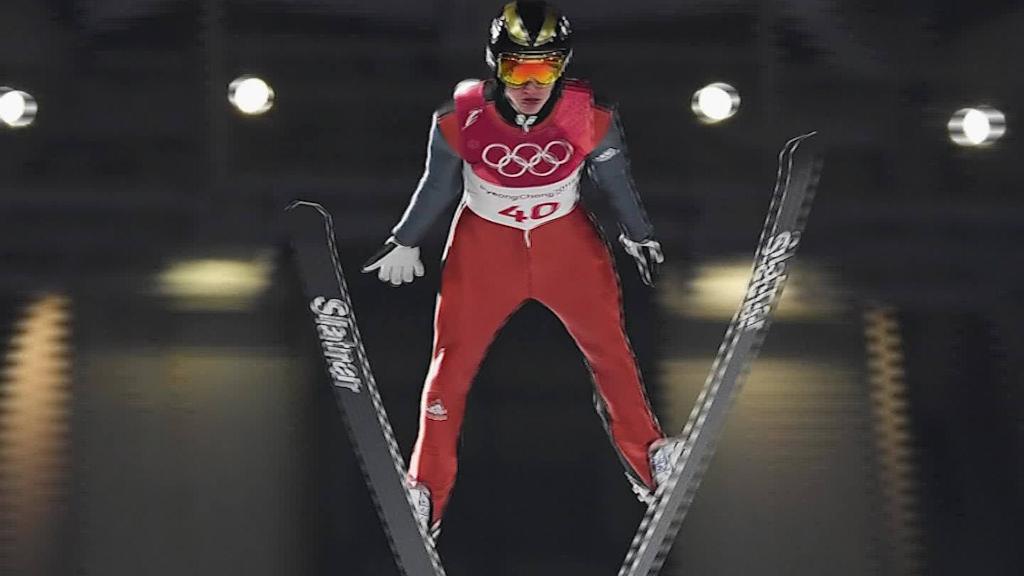
Abby Ringquist is a US Olympic ski jumper who made her Olympic debut at the XXIII Winter Games in PyeongChang, South Korea. The opinions in this article belong to her.
It was 2002, I was 12 years old, and the Olympics were in my hometown: Park City, Utah. My eyes were glued to the ski jumpers. But it did not occur to me that there were no women competing in the events.
Women had been petitioning the International Olympic Committee to qualify and compete in the ski jumping events for years, but the sport was restricted to men.
But when all you've ever dreamed of is competing in the Olympics, nothing will stand in your way. So I trained, campaigned and fought. And nine years later, the IOC acquiesced.
Related: U.S. Olympic athletes sure aren't paid like champions

Still, the battle for gender equality was far from over. Just because women were now allowed to compete in Olympic ski jumping didn't mean they could afford to.
To make it to the qualifying events for the 2014 Sochi games in Russia, my family shed a lot of cash. I mean, a lot of cash. Thousands upon thousands of dollars.
At elite levels of all sports, it's not uncommon for families to spend more than $20,000 per year. While funding and prize money are out there, that money disproportionately benefits male athletes.
Take the FIFA World Cup. In 2015, the US Women's National Team took home $2 million for winning the World Cup, while Germany's men's team took home $35 million for winning the 2014 World Cup. The US men's team finished in 11th place in 2014 with $9 million — four times as much as the 2015 women's championship team.
Even when I thought I'd reach a point in my career where I'd finally have access to funding, I was informed that some funding for the US Women's Ski Jumping team had fallen through. Only the top three women on the team would receive money. So, unless I performed the next competition at the highest possible level, I would be cut off for the rest of the season.
I felt like I had face-planted into icy snow. The money should have been there. Yet it wasn't. And there was no way I could continue to pursue this goal without a miraculously fuller checking account.
Related: Why sponsors are breaking up with the Olympics
So, still training full-time, I got a job. And another one. And a third one. I coached the junior jumpers — local preteen girls with their own competition dreams. I worked at Habitat for Humanity and served at a cafe. Every last penny from those three jobs went into traveling to compete.
Qualifying for the Olympics isn't just about talent and skill and dedication. It's also — sometimes even more so — about money.
The financial obligation starts when athletes are young. About one in three parents from households making less than $50,000 a year had to pull their child out of sports because the cost was just too high, according to a study by Harvard University and the Robert Wood Johnson Foundation.
While athletic opportunities have increased for high schoolers, a University of Michigan study found that opportunities for boys have grown more than those for girls.
That's an issue, because just like boys, girls need sports. Not only do sports offer physical benefits, but according to the Women's Sports Foundation, girls and women who play sports also have higher levels of confidence and self-esteem and lower levels of depression. Plus, high school girls who play sports are more likely to graduate.
Related: U.S. figure skating used to be wildly popular. What happened?
In short, sports change lives. This was most evident to me this February at the PyeongChang games, 16 years after watching those ski jumpers in Park City. At 28, I achieved my ultimate goal of becoming an Olympian, and I did not need to medal to know that I'd made it. But what now?
I'm done. I can no longer continue to fund another Olympic pursuit.
Even while putting three separate paychecks toward ski jumping, I barely scraped by. If it weren't for additional funding through organizations like 1,000 Dreams Fund, which supported my journey last fall, I don't know if I could have made it all the way to the Olympics.
If we want young girls to reap the immeasurable benefits of sports — just as boys do — competitive sports need to be financially accessible.
So, let's get the girls out onto the playing field. I've achieved my Olympic dream. Now I want to see more girls achieve theirs.
